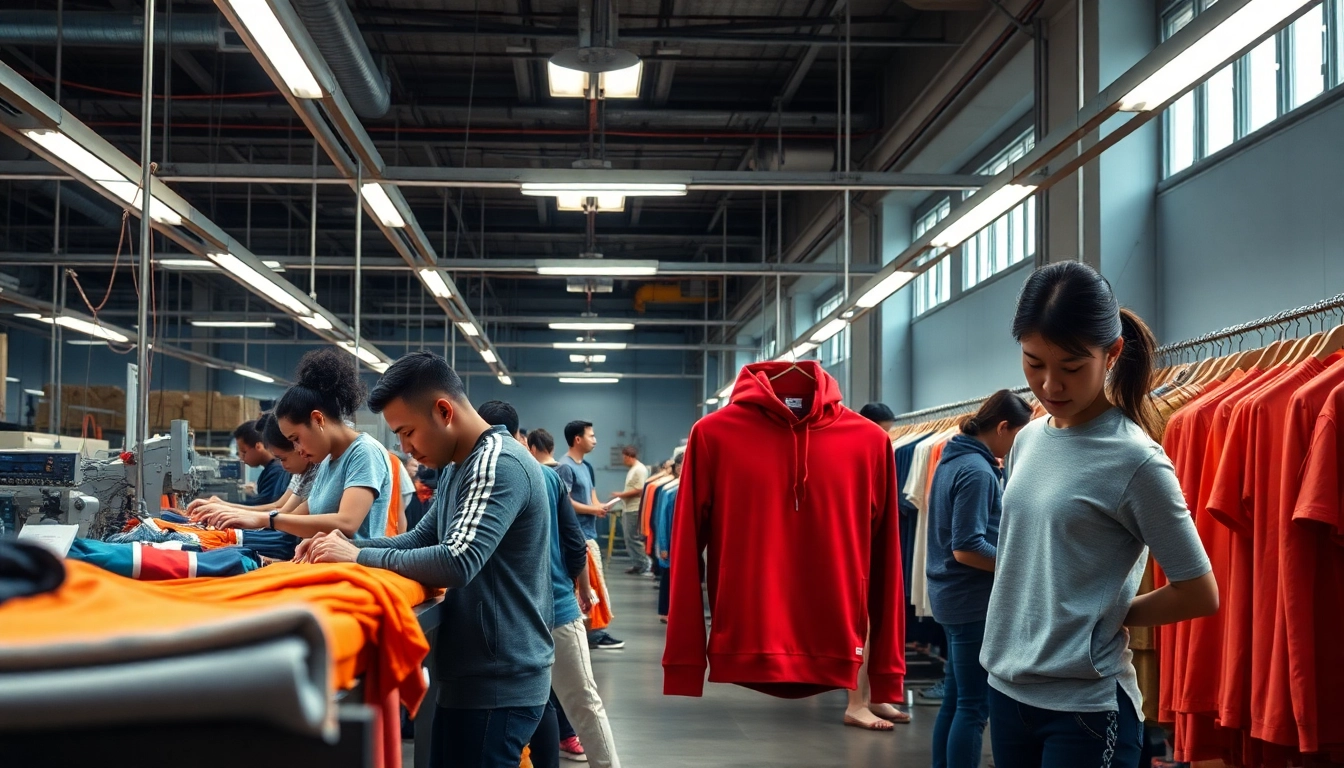Understanding the Role of a Sportswear Factory in Athletic Apparel Production
In the competitive world of sports and athletic apparel, the backbone of quality, innovation, and timely delivery lies in the capabilities of a dedicated sportswear factory. These manufacturing facilities are instrumental in transforming design concepts into tangible, high-performance garments that meet the demanding needs of athletes, teams, and sports organizations worldwide. Whether producing custom uniforms, performance wear, or bulk athletic apparel, a sportswear factory ensures adherence to strict quality standards while maintaining efficiency and cost-effectiveness.
Definition and Core Functions of a Sportswear Factory
A sportswear factory is a specialized manufacturing plant dedicated to producing apparel designed for sports, fitness, and active lifestyles. Its core functions encompass several critical stages, ensuring products are crafted to precise specifications and high standards:
- Design Development: Collaborating with brands or designers to realize product concepts.
- Material Sourcing: Selecting appropriate fabrics and accessories suitable for performance and durability.
- Pattern Making and Sampling: Creating prototypes to test fit, comfort, and style.
- Mass Production: Employing advanced manufacturing techniques to produce large quantities efficiently.
- Quality Control: Implementing rigorous testing to ensure each item meets technical and aesthetic standards.
- Packaging and Delivery: Finalizing products for distribution, ensuring timely shipment to clients globally.
These functions demand a high level of expertise, modern machinery, and control processes that uphold product integrity from raw material to finished apparel.
Key Technologies Used in Sportswear Manufacturing
Technological advancements have significantly elevated the capabilities of sportswear factories. Some of the most impactful technologies include:
- Computer-Aided Design (CAD): Facilitates precise pattern creation and modifications, allowing rapid prototyping.
- Automated Cutting Machines: Enhance accuracy and reduce wastage during fabric cutting processes.
- Sewing Automation: Modern sewing machines equipped with programmable features increase production speed and quality consistency.
- Heat Transfer and Sublimation Printing: Enable vibrant, durable designs directly onto fabrics, ideal for customizable sportswear.
- Performance Testing Equipment: Assesses durability, stretch, moisture-wicking, and other performance metrics vital for sports apparel.
- ERP and Supply Chain Management Software: Streamlines procurement, production planning, and logistics, ensuring just-in-time manufacturing and delivery.
By integrating these technologies, a sportswear factory can significantly improve productivity, customization scope, and product quality, helping brands stay competitive.
Importance of Quality Control in Sportswear Production
Quality control (QC) is paramount in sportswear manufacturing, given the high-performance demands and safety considerations. The efficacy of QC measures directly impacts customer satisfaction, brand reputation, and compliance with international standards. Key aspects include:
- Material Inspection: Verifying raw fabrics and accessories for defects, weight consistency, and compliance with specifications.
- In-Process Inspection: Ongoing checks during manufacturing processes to detect issues early.
- Final Product Testing: Assessing durability, colorfastness, breathability, moisture-wicking, and anti-shrink properties.
- Certification Compliance: Ensuring products meet standards such as ISO, Oeko-Tex, or specific sports industry certifications.
Implementing robust QC protocols minimizes returns, guarantees product longevity, and enhances performance consistency—critical factors for athletes and teams relying on top-tier equipment.
Choosing the Right Sportswear Factory: Factors to Consider
Selecting a manufacturing partner requires careful evaluation across multiple dimensions to ensure alignment with brand goals. Essential factors include:
Manufacturing Capacity and Lead Times
Assess whether the factory can handle your order volume within expected timeframes. A factory with scalable capacity supports both small-batch custom runs and large-scale production, enabling flexibility and responsiveness to market demand.
Customization Options and Design Flexibility
Effective sportswear factories should offer a broad spectrum of customization—such as fabric selection, colorways, branding placements, and technical features—to create unique, competitive products.
Compliance with International Standards and Certifications
Factories adhering to recognized standards like ISO, OEKO-TEX, and sport-specific certifications demonstrate a commitment to quality, safety, and environmental responsibility. This compliance is critical for global market access and brand credibility.
Designing Custom Sportswear: From Concept to Delivery
The journey from an initial idea to a finished product involves close collaboration with the manufacturer, technical expertise, and meticulous planning. Success hinges on several critical steps:
Collaborating with Manufacturers for Unique Sportswear
Develop clear design briefs, including technical specifications, branding details, and performance features. Engage in prototype testing, and leverage the manufacturer’s experience for material and construction recommendations.
Materials and Fabrics for Performance Sportswear
Choosing the right fabrics—such as moisture-wicking polyester, Lycra blends, or eco-friendly options—affects comfort, durability, and sustainability. Advanced fabrics incorporate anti-odor, UV protection, and stretch properties tailored for specific sports.
Quality Assurance and Final Inspection Processes
Prior to shipment, products undergo comprehensive inspection, including stress testing, colorfastness, and fit assessments. Working with a factory that provides transparent quality reports ensures confidence in the final batch.
Benefits of Partnering with a Trusted Sportswear Factory in Pakistan
Pakistan has emerged as a leader in sportswear manufacturing, offering significant advantages such as:
Cost-Effective Manufacturing Solutions
Competitive labor costs combined with modern infrastructure allow factories to deliver high-quality products at reasonable prices, boosting margins for apparel brands.
Fast Turnaround and Reliable Supply Chain
Proximity to major shipping hubs and efficient logistics channels facilitate quick production cycles and on-time deliveries, crucial in the fast-paced sports industry.
Supporting Local Industry and Ensuring Ethical Production
Partnering with Pakistani factories encourages local economic growth, job creation, and adherence to ethical manufacturing standards, aligning with sustainability goals.
Emerging Trends in Sportswear Manufacturing and Innovation
The industry is dynamic, continually evolving with technological and consumer preferences. Noteworthy trends include:
Adoption of Sustainable and Eco-Friendly Fabrics
Factories are increasingly utilizing recycled polyester, organic cotton, and biodegradable materials to reduce environmental impact, aligning with global sustainability commitments.
Integration of Technology for Smart Sportswear
Embedding sensors and connectivity features transforms traditional apparel into smart devices, enabling performance tracking, health monitoring, and personalization.
Customization and On-Demand Manufacturing Techniques
On-demand production reduces inventories, allows rapid customization, and responds swiftly to trends—reducing waste and increasing agility for brands.

